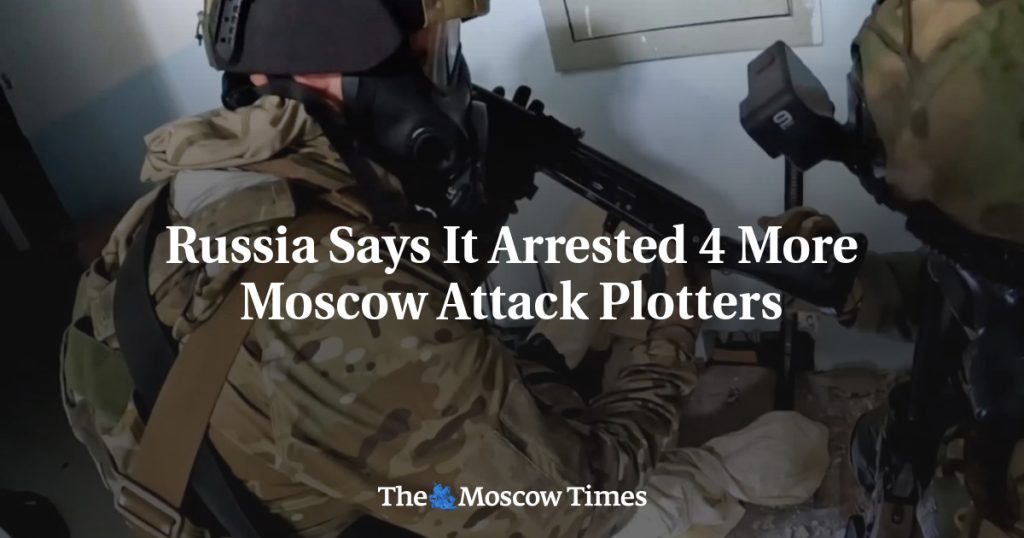The FSB security service in Russia has arrested four individuals in connection with a foiled terrorist plot, stating that they provided money and arms for the deadly attack on a Moscow concert hall which resulted in over 140 deaths. This attack occurred in March, making it the most fatal incident in Russia in two decades. The group of four was arrested in the southern Dagestan region, according to the FSB statement released on Monday. The agency revealed that they were directly involved in financing and supplying terrorist means for the attack on Crocus City Hall.
Furthermore, the National Anti-Terrorism Committee in Russia confirmed the apprehension of three individuals who were planning a series of terrorist crimes. The arrests were made in Makhachkala and Kaspiysk, with four foreign citizens being detained. One of the arrested men was captured on video admitting that he had supplied weapons to the individuals responsible for the attack on Crocus City Hall. Russian authorities have already announced the arrests of 12 people connected to the attack, including the four gunmen who have been identified as citizens of Tajikistan.
Despite the Islamic State claiming responsibility for the massacre and President Vladimir Putin suggesting a Ukrainian and Western connection, Kyiv and the West have denied involvement and accused Moscow of exploiting the tragedy. Dagestan, the region where the arrests were made, is Muslim-majority and located in Russia’s southern Caucasus region. The FSB has faced criticism for its failure to prevent the attack, even though there were warnings from the U.S. intelligence community about possible extremist activity targeting large gatherings in Moscow.
The FSB has been under scrutiny for its handling of the situation, with questions raised about its effectiveness in preventing terrorist attacks. While the agency has often announced the disruption of alleged terrorist cells, recent focus has been on the arrests of individuals planning attacks on Russian military sites and infrastructure, particularly those with pro-Ukrainian ties. Despite the arrests made in connection with the Crocus City Hall attack, the responsibility of different parties and the motives behind the incident remain a subject of debate and disagreement between various actors involved in the situation. The ongoing investigations and responses from all parties involved will be crucial in determining the future course of action in addressing terrorism threats in Russia.















